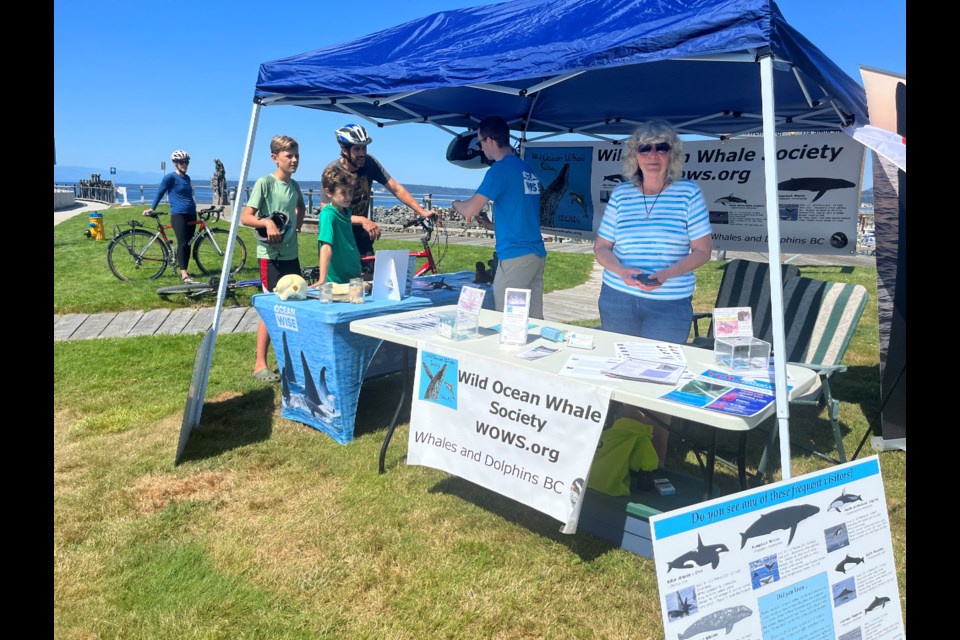Humpback whales have returned to the qathet region, which brings joy to people who spot them, but for baleen whales it's a time for feeding in the nutrient-rich waters and avoiding entanglements and boat strikes.
Founder of Wild Ocean Whale Society (WOWs) Susan Mackay is at Westview (Powell River) Terminal today, Friday, August 2, for most of the day. WOWs, in partnership with the organization Ocean Wise, are engaging the public about whales, pinnipeds (sea lions and seals) and other sea mammals in the qathet region.
Baleen whale activity was reported to WOWs on July 22: "Our report includes sightings of a number of different species. Of note is northern resident orca near Lund on July 22, and Grey whales observed on the west coast of Vancouver Island in Pachena Bay as well as in Botany Bay.”
The report also included a sighting of a pod of Dall’s porpoises that was seen off Francisco Point on Quadra Island on July 18, and there was one baby/calf in that pod.
MacKay said that humpbacks have returned to the qathet region and four entanglements had been reported recently to Fisheries and Oceans Canada (DFO).
Humpback, blue, grey, minke and fin whales are classified in a group called baleen whales. These whales do not have teeth and instead, they have baleen, which are protein plates hanging down from the upper jaw that filters out their prey from the water.
Sea otters are a rare sight in qathet waters but the northern river otter is seen regularly around harbours and seashores in BC. Sea otters were hunted to near extinction, but their numbers have increased on the northern and central west coast of Vancouver Island. Although sea otters are a rare sight, MacKay said some had been spotted near Mitlenatch Island in the Strait of Georgia.
DFO issued the following statement about watching orca in the wild: “Vessels must stay 400-metres away and may not position a vessel in the path of killer whales in southern BC coastal waters between Campbell River and just north of Ucluelet until May 31, 2025.”
For all other areas of BC outside of the area indicated above, a minimum distance of 200-metres must be maintained when viewing orca or while viewing any cetaceans resting or with a calf.
WOWs encourages the public to report marine mammal incidents such as entanglements in fishing gear, or a marine mammal in distress, to Fisheries and Oceans Canada’s 24/7 Observe, Record, Report Line at 1800.465.4336, or VHF Channel 16.
To report a whale sighting to WOWs, go to wildoceanwhale.org/sightings-program.
Join the Peak’s email list for the top headlines right in your inbox Monday to Friday.




